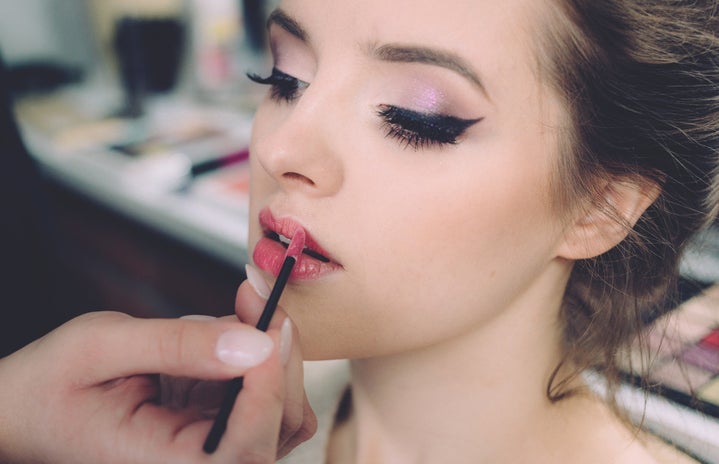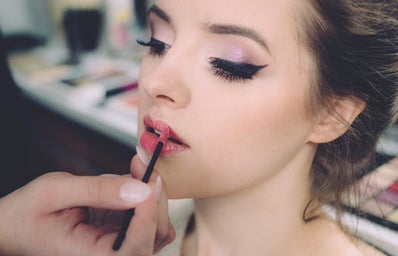Top 5 Acne Facts and Myths
When I was a teenager, the main thing that took over my life was my skin. I was someone who suffered from really bad acne, trailing many different products in order to get rid of it. I was given so much advice, that my head felt like it would explode. There are so many common facts and myths that get spread around about acne, so let’s start from the basics.
What is Acne?
Acne is a common skin condition that affects most people at some point. It causes spots to develop on the skin, usually on the face, back and chest.
How is it caused?
It is linked to changes in hormone levels (particularly during puberty); glands in the skin produce excessive amounts of an oily substance called sebum. This blocks the small holes in your skin through which your hairs grow causing blackheads or whiteheads.
Although it is primarily associated with the hormonal changes during puberty, you can develop acne at any stage in your life.
Harmless bacteria which lives on the skin can cause a blocked follicle (small bodily cavity in the skin) this can cause cysts and pus-filled papules.
Acne can run in the family. So if your parents had it, you are more likely to get it as well.
Who is affected?
Acne is very common in teenagers and young adults. About 80% of people between the ages of 11-30 will be affected by it. Acne is mostly common between 14-17 years old for girls, and 16-19 years old for boys.
Most people have acne on and off for years but symptoms start to improve as you reach your twenties. In some cases through acne can continue into adult life, with 5% of women and 1% of men having acne over the age of 25.
NHS: http://www.nhs.uk/Conditions/Acne/Pages/Introduction.aspx
Top 5 Facts and Myths on Acne
When I had acne, I was given so much advice on what to do. However, what we don’t know is that there are quite a few facts and myths about acne that we just don’t know about. Here are my top 5:
1) “Pizza, fries and chocolate give you acne”
No food has ever been proven to cause acne, but everyone is different. Some people have skin which is really sensitive to certain foods, and studies have shown that if your diet does not contain a lot of carbohydrates and sugars it can affect the body’s oil production. But eating foods with antioxidants in and staying hydrated can help maintain healthy skin.
So make sure you have a balanced diet and drink lots of water!
2) “Stress causes acne”
Stressing out won’t cause acne, but the stress can cause the body to produce oil which can cause acne by clogging up the pores. When you are under stress your body produces hormones which trigger the oil producing glands to work very actively.
Oily skin is more prone to acne which can cause flare-ups, this causes more stress and stress makes acne worse. Studies have found that college students have increased breakouts during finals but it’s hard to proove if stress is the cause as this doesn’t happen to every student when they have exams. Make sure you cleanse your face morning and night, exercise and get enough sleep!
3) “The Sun helps get rid of acne”
Being in the sun doesn’t clear up acne, it makes it worse. The sun can dry out your skin which seems to reduce the appearance of acne. However, it can make it worse as, when your skin dries out, the body produces more oil to help keep it moisturised. This can lead to breakouts, which can cause acne.
UV rays can cause redness and inflammation which can make your skin worse as well, giving you a higher risk of getting skin cancer and wrinkles. Do your skin a favour from all these problems, wear sunscreen! Just pick the right one. If you are prone to acne use an oil-free one, using a physical sunscreen, for example zinc oxide instead.
4) “Don’t wear makeup if you have a break-out”
Some makeup can definitely make acne worse, especially foundations which have a thicker liquid to them which can clog the pores. Always use lighter foundations, as these won’t be so aggravating to your skin. Compromising is good when you want to use make up.
People with acne want to use thicker liquids as it covers up your spots better. However, always make sure that you wash it off thoroughly. Using oil-free make up also helps you if you have acne-prone skin.
5) “Cleansing more often means less acne”
Cleansing more often does not less acne. A good skin routine is to cleanse morning and night; so twice a day, every day but make sure it is with an acne cleanser.
Cleaning too frequently can dry out the skin and, even if you have acne, skin needs its moisture to function. Skin can get red and irritated when it’s too dry which causes your body to produce more oil to try and moisture the skin. This can lead to breakouts. So cleanse your skin twice a day and you’ll be fine!
Image: http://brand.restorsea.com/2013/06/05/ask-patti-a-bit-of-everything/

